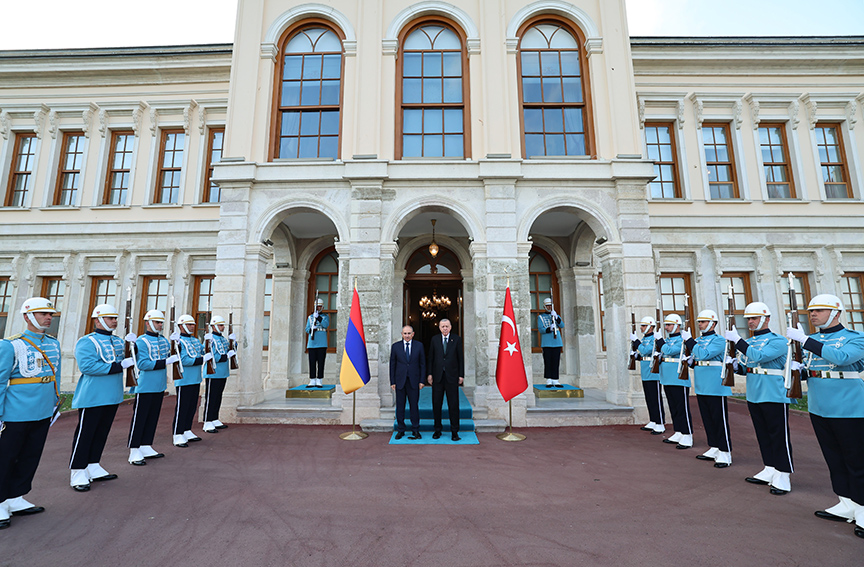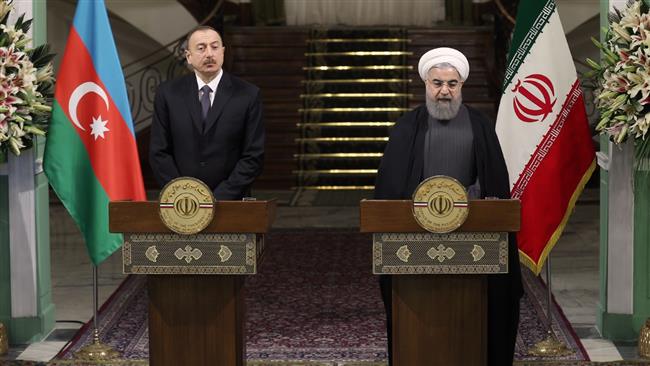
Beyond any doubt, refugee problem, currently primarily driven by the ongoing civil war in Syria, is one of the greatest challenges of the 21st century. 2015 has witnessed the worst refugee crisis, or better to say, humanitarian crisis since World War II as vast numbers of refugees have undertaken the perilous journey across Mediterranean, seeking asylum in Europe.[1] Often in the hope to get to Western Europe, most of the refugees and migrants from Syria (66%), Afghanistan (21%) and Iraq (6%), start their journey on the shores of Turkey, cross the Aegean to the Greek islands and then move through Greece mainland and Macedonia.[2] Due to their strategic position on the west Balkan route, the respective policies of Balkan countries, such as Croatia, Serbia, Slovenia and Hungary, occupy a particularly important place in the ongoing refugee problem, which is, in fact, relevant not only to Europe but to the whole world.
While as many as 218,000[3] reached Europe crossing Mediterranean last month alone, it is estimated that a total of 819,218 migrants and refugees made it to the continent this year.[4] Only between 16-22 October, more than 62,000 refugees and migrants arrived Greece by sea, marking the highest weekly arrival figure so far.[5] While the official number of migrants and refugees entering Europe is striking, the disturbing fact that more than 3,000 have died or gone missing at sea in 2015, stands as a bitter human tragedy unfolding at the shores of the Mediterranean, urging European leaders to fulfill their moral obligation by finding a solution to the ongoing crisis.[6] As Europe has found itself unprepared to deal with influx of refugees, the European and Balkan leaders not only struggle to find a common ground on the issue, but also to restore the existing social, economic and political relations within their respective societies with the increasing right-wing populism.
Though the complexity and the scale of the refugee problem have many dimensions, a significant portion of the debate revolves around the European leaders’ ability to come up with a unified migration plan. The respective political, economic and social concerns of each potential host country makes it extremely difficult, if not impossible, to find a common ground with regards to the number of refugees and migrants each country is willing to take. On 23 September, European leaders accepted the European Commission’s (EC) plan to distribute 120,000 people. The number of refugees each country would take was based on the respective population size and GDP of each state. In the midst of the disputes about the fairness of the quota system, the proposal of EC was adopted, as Hungary, Czech Republic, Romania and Slovakia voted against the mandatory quotas and Finland abstained. Nevertheless, in line with the plan, currently, Germany and France are the two countries to take the greatest number of refugees in the region. Merkel, saying that it is Germany’s responsibility to find a resolution to the problem that encourages solidarity rather than division, has been spearheading the efforts to settle the refugee problem.[7] In fact, Germany declared that it would take in 800.000 people; however, it is facing an influx of 1.5 million refugees and migrants this year, drastically higher than the official estimate.[8]
As Merkel is coming under increasing pressure by her Bavarian coalition partners and right wing conservatives over her open-door policy, her popularity is as low as it has never been since 2011. Indeed, in late October, the leader of Bavaria’s right-wing conservative Christian Social Union has warned the Chancellor that his party will leave her coalition unless she changes the policy on refugees dramatically.[9] As Merkel holds firm to her principle that the right to asylum for the politically persecuted has no upper limit and emphasizes her motto “We can do it!”, the latest attempt of the EU to take control of the influx of refugees is to establish processing centers along the western Balkan route.[10]
Reiterating that the borders must remain open, the Chancellor’s statements on 3 November sparked another diplomatic dispute among the leaders of Balkans and Europe. Speaking at a conference in Darmstadt in southern Germany, Merkel said that if Germany closed its border, then other countries would do likewise, which could lead to military conflict in Balkans.[11] A quick response came from Croatia, Serbia and Bosnia-Herzegovina. The Croatian Prime Minister, Zoran Milanovic, said that there will be no armed conflict in Balkans if Germany were to close the borders for migrants.[12] He added that Croatia could close the borders "more quickly" than Germany. Meanwhile, in Sarajevo, the Chairman of the Bosnian Council of Ministers, Denis Zvizdic, and Serbian Prime Minister, Aleksandar Vucic, said that closing European borders to migrants could affect the situation in the region and raise tensions, but that they are confident that armed conflicts are out of the question.[13] Vucic also asserted that Merkel's intentions were good and that her warning was in fact her wish that something like this did not happen.
Though it is true that the influx of refugees in Balkans can increase tensions in the region, it is rather hyperbolic to assume that the construction of border fences would directly lead to a military confrontation. Having experienced a devastating war in early 1990s, none of the Balkan countries, particularly Croatia, Bosnia-Herzegovina and Serbia, would take bold steps that would lead them to another armed dispute. Though it can be argued that the wars of 1990s are not completely solved, it should also be noted that there is an increasing cooperation between Balkan nations. While they are far from reaching a consensus about their respective policies on refugee quotas, on 25 October, the representatives of Albania, Austria, Bulgaria, Croatia, Macedonia, Germany, Greece, Hungary, Romania, Serbia and Slovenia met in Brussels and agreed on a 17-point plan of action.[14] Furthermore, it should not be forgotten that several Balkan states, such as Serbia, Albania, Montenegro, Macedonia and Bosnia-Herzegovina, are seeking to get EU membership and, to that end, they are trying to present a good image of themselves. Thus, for the moment, the possibility of a military conflict in the Balkan region, due to the closure of borders, does not seem to be very high.
Yet, it is true that any move by Germany to close its borders, would lead to further deterioration of the humanitarian crisis in the region. Noting that Germany has received 243,721 refugees since January, if the government was to close its borders, there would be hundreds of thousands of people left in no man’s land without having adequate supplies of aid, food or shelter. Hungary, which has the main overland route for people traveling to western Europe from Balkans, stands as a relevant example. By closing its border with Croatia and Serbia, Hungary, defamed for its ill-treatment of refugees and for using razor-wire fence to keep out migrants, triggered a series of crisis in the region, particularly in Slovenia and Croatia. Thousands of refugees heading to Hungary had to change their route to these two countries. Consequently, nearly 105,000 people entered Slovenia in less than two weeks and 200,000 migrants passed through Croatia only in four weeks. As a result of this unexpected influx of refugees, the Slovenian military started to set up a barbed wire fence on the border with Croatia.[15] Clearly, due to the interdependence among European and Balkan states, the unilateral decisions taken by countries with regards to their immigration policies have substantial effects throughout the whole region. Keeping in mind that Germany, as the most populous country of Europe, shoulders a significant responsibility by taking more refugees than any other European state, any decision by German officials to close its borders has a great potential to result in intense political and social unrest, not only among its neighboring countries but throughout the whole Balkan region.
That being said, an increasing number of European and Balkan countries, including Bulgaria, Romania and Serbia, are planning the close their borders. Once a critic of fences, Austria has also announced that it will construct barriers at the Spielfeld border crossing with Slovenia.[16] Upon reviewing these latest worrisome developments in the region, it is highly probable that Merkel felt the need to emphasize the importance of keeping the borders open, and to that end, she lit the fuse of a discourse that would discourage Balkan countries from erecting barriers along their borders. As part of that strategy, she stated that the fence built by Hungary on its border with Serbia "will build up fault lines”[17] between the states in the Balkan region.
As the Chancellor and the European Commission is trying to get all Europe’s leaders embrace a common European immigration policy towards the migrant crisis, the approaching winter brings up new issues, such as hypothermia, pneumonia and opportunistic diseases, threatening the lives of refugees who are undertaking the dangerous journey through Mediterranean even when the sea is rough. Between November 2015 and February 2016, 600,000 refugees and migrants are expected to arrive in Croatia, Greece, Serbia, Slovenia and Macedonia.[18] Taking into consideration the additional complications that will arise with colder temperatures, the United Nations Winterization Plan for the Refugee Crisis in Europe allocates a total of USD 95.15 million in supplementary financial requirements for winterization activities between November 2015 and February 2016.[19] The countries that are expected to be heavily affected by the wave of refugees throughout this period of time are Albania, Bosnia-Herzegovina, Bulgaria, Italy, Montenegro, Romania and Kosovo. As the UN plans to continue working with several NGOs to provide for the additional needs of the migrant population throughout the winter, the temperatures are dropping at a faster rate than the ability of the leaders to make decisions.
Another dimension of the refugee problem in Europe and Balkans has to do with the increasing popularity of the political parties on the far-right of the political spectrum. Pegida and Alternative for Germany (AfD) in Germany, Front National (FN) in France, the UK Independence Party (UKIP) in Great Britain and the Freedom Party of Austria (FPÖ) are only few of the examples.[20] In the midst of the ongoing crisis, many far-right anti-immigration parties successfully appeal to voters' concerns about the possible effects of the refugees and migrants on their nations. In October, after a heavy election campaign that took a hard line on refugees and migrants, Poland’s hard-core right-wing Law and Justice Party won the parliamentary elections.[21] The Danish People's Party, advocate of nationalism and anti-immigration, received the second largest percentage of Denmark's vote in June's national elections.[22] Austria's far-right Freedom Party came second during last month's regional election, while Greece's neo-fascist Golden Dawn gained the third largest percentage of the vote in both of the country's parliamentary elections this year.[23] Meanwhile, days before the election in Poland, Law and Justice Party figure and former Prime Minister Jaroslaw Kaczynski said that Muslim refugees would bring parasites and diseases to the local population.[24] Another comment came from Hungary's staunch immigration opponent Viktor Orban, saying that the refugees entering Europe "look like an army".[25] These remarks not only show that xenophobic sentiments and Islamphobia are starting to have a stronger grip in Europe with the ongoing refugee problem but also that there is a growing pressure on the center-left parties to review their immigration policies.
It should also be noted that Merkel’s repeated statements about the key position Turkey can play in the refugee problem is attention-grabbing. Currently, Turkey hosts 2,181,293 registered Syrian refugees.[26] On 26 October, Merkel said: “Only with Turkey we can switch illegality to legality. It is very important that [European] Commission discusses further the migration agenda with Turkey”.[27] During her last visit to Istanbul, Merkel signaled loosening visa requirements for Turkish citizens in return for cooperation in stemming the flow of migrants and taking back those rejected by Europe. Merkel’s trip to Turkey has created another question mark in the heads of many: which country gains more from this cooperation?
Last but not least, the alleged links between one of the attackers of the recent terror attacks in Paris, claiming 129 lives, and the influx of refugees, have played into the hands of the far-right anti-immigrant political parties in Europe by intensifying fears about the increasing refugee population in the region. As number of people blamed the refugee crisis and Islam for the attacks, far right protests broke out in France on Sunday, with demonstrators chanting “out the Muslims” and carrying “throw out Islamists” signs.[28] If the alleged link between the attacks and the refugee crisis is established, then it is very likely that a new chapter will open up in the refugee problem as the leaders of Europe and Balkans may feed on them pursue and justify an “anti-immigration” agenda. Upon the massacre in Paris, Poland’s incoming Minister for European Affairs, Konrad Szymanski, has already stated that they would accept refugees only if they have security guarantees, while the Finance Minister of Bavaria, Markus Soeder, said: “The days of uncontrolled immigration and illegal entry can’t continue just like that. Paris changes everything”[29]. Meanwhile, shadowed by the attacks in Paris, the refugee problem marked the start of the two-day G20 meeting in Turkey. Leaders of the world's 20 major economies, making up 85 percent of the world’s GDP,[30] called "upon all states to contribute to responding to this crisis and share the burdens associated with it".[31] The EU President Donald Tusk said that the attacks on moderate opposition forces in Syria are further increasing the number of refugees.[32] Yet, despite these statements touching on the refugee issue, the summit severely fell short in creating any comprehensive or effective agenda to deal with the crisis. Though on Monday, the President Obama stated that refugee crisis should not be equated with terrorism and that the US should not distinguish between Christian and Muslim refugees[33], after the tragedy in Paris, tougher measures seem to await not only the refugees coming to Europe and Balkans but also the Muslim populations that in live in the region.
As a final word, it is crucial to note that the respective countries’ plans to close their borders can potentilly result in greater number of refugees rushing to Balkans in a shorter period of time to be able to get to western Europe before the states close their doors. Indeed, the fact that the number of refugees undertaking the perilous journey across Mediterranean hit the records in October, just before the beginning of winter, is alarming as it shows that the worsening weather conditions do not stem the stream of refugees flowing into Europe. In this regard, it is of utmost importance that the countries in the region refrain from closing their borders. But more importantly, leaders of Europe and Balkans should acknowledge that the refugee problem in Europe will de determined by their ability to compromise and to overcome the mindset that “Europe should take refugees but not my country”. As the ongoing refugee problem tests EU’s humanitarian standards, the future political identitity of the European countries will be shaped by the way they chose to deal with the crisis.
[1] It is important to point out the difference between refugees, migrants and asylum-seekers. Refugees are individuals who seek safety in nearby countries due to an armed conflict or persecution in their native land. They are internationally recognized as “refugees” with access to assistance from States, UNHCR and other organizations. Refugees are defined and protected under international law. These are people for whom denial of asylum has potentially deadly consequences (UNHCR).
On the other hand, an asylum-seeker is someone who says he or she is a refugee, but whose claim has not yet been definitively evaluated. Whether the asylum-seeker qualifies for international protection or not, is decided through national asylum systems. Those judged through proper procedures not to be refugees, nor to be in need of any other form of international protection, can be sent back to their home countries (UNHCR).
Migrants are different for they move mainly to improve their lives, find a better job, for education or family reunion. These people are not under a direct threat of persecution or death. Unlike refugees who cannot safely return home, migrants face no such impediment to return (UNHCR).
This distinction is important for individual governments mainly because they deal with migrants under their own immigration laws and processes. Countries deal with refugees through norms of refugee protection and asylum that are defined in both national legislation and international law (UNHCR).
[2]Europe’s Refugee Emergency Response – Update #7 UNHCR
file:///C:/Documents%20and%20Settings/Administrator/Belgelerim/Downloads/UNHCRUpdate%237ontheEmergencyResponseinEurope.pdf
[3] “The Winter is Coming :The New Crisis for Refugees in Europe” The Guardian
http://www.theguardian.com/world/2015/nov/02/winter-is-coming-the-new-crisis-for-refugees-in-europe
[4] “Refugees/Migrants Emergency Response – Mediterranean ” UNHCR
[5]Europe’s Refugee Emergency Response – Update #7 UNHCR
[6]ibid
[7]“Refugee Crisis: Merkel Warns of War in Balkans”
http://www.thelocal.de/20151103/merkel-warns-of-military-conflict-in-balkans
[8]“Germany Expects Up To 1.5 Million Migrants in 2015” The Telegraph
[9] “Refugee Crisis: Angela Merkel’s Allies Could Desert Her Over Germany’s Open-Door Policy” Independent
[10] “EU Considering ‘processing centers’ in W. Balkans to Contain Migrant Flow”
http://en.dalje.com/2015/11/eu-considering-processing-centres-in-w-balkans-to-contain-migrant-flow/
[11] “Refugee Influx Could Spark ‘Military Conflict’ in Balkans, Angela Merkel Warns” Independent
[12] “Croatian Prime Minister Rules Out Any Armed Conflicts on the Balkans” Independent
[13] “Serbia, Bosnis Confident There Will Be No Arm Conflicts in Balkans”
http://en.dalje.com/2015/11/serbia-bosnia-confident-there-will-be-no-arm-conflicts-in-balkans/
[14] “Meeting on the Western Balkans Migration Route: Leaders Agree on 17-Point Plan of Action” European Commission
[15] “Slovenia Starts Building a Fence on Croatia Border”
http://www.balkaninsight.com/en/article/slovenia-setting-a-fence-on-border-with-croatia-11-11-2015
[16] “Still the Refugees Are Coming, But In Europe the Fences Are Rising” The Guardian
http://www.theguardian.com/world/2015/oct/31/austria-fence-slovenia-wire-europe-refugees
[17] “Refugee Crisis Could Spark War if Austria Closes Border With Germany, Merkel Warns”
[18] Winterization Plan for the Refugee Crisis in Europe UNHR
[19] ibid
[20] “Europe’s Conservatives Firght Over Merkel’s Refugee Speech”
http://www.dw.com/en/europes-conservatives-fight-over-merkels-refugee-speech/a-18800824
[21] “Poland Elections: Right Wing Law and Justice Party Gains Most Votes” Independent
[22] “Danish Election: PM Concedes Defeat and Resigns” The Guardian
http://www.theguardian.com/world/live/2015/jun/18/denmark-general-election-2015-results-live
[23] “How the Refugee Crisis is Fueling Europe’s Right” Huffington Post.
http://www.huffingtonpost.com/entry/europe-right-wing-refugees_562e9e64e4b06317990f1922
[24] ibid
[25] ibid
[26] Syria Regional Refugee Response UNHCR
[27] “Europe’s Refugee Crisis: EU, Balkan Leaders Finali 17-Point Plan to Tackle Massive Influx, Provide Shelters” International Business Times
[28] “Paris Attacks: Stephen King Takes to Twitter to Demonstrate Hypocrisy of Blaming Muslims for Massacre” Independent
[29] “Western Leaders Urge Putin at G20 to Change Course in Syria” The Guardian
[30]“Why Won’t the G20 Address the Refugee Crisis?” Foreign Policy
http://foreignpolicy.com/2015/09/10/why-wont-the-g20-address-the-refugee-crisis/
[31]“G20 Summit: Paris Attacks and Refugee Crisis Dominates Opening of G20 Summit” International Business Times
[32]“Western Leaders Urge Putin at G20 to Change Course in Syria” The Guardian
[33]“Obama: Refugee Crisis Should Not Be Equated With Terrorism” France 24
http://www.france24.com/en/20151116-obama-refugee-crisis-terrorism-g20
© 2009-2025 Center for Eurasian Studies (AVİM) All Rights Reserved
No comments yet.
-
 PASHINYAN'S WORKING VISIT: A STEP FORWARD IN THE TÜRKİYE-ARMENIA NORMALIZATION PROCESS
PASHINYAN'S WORKING VISIT: A STEP FORWARD IN THE TÜRKİYE-ARMENIA NORMALIZATION PROCESS
Tuğçe TECİMER 27.06.2025 -
DIASPORA ARMENIANS AND THEIR INITIATIVES FOR COMPENSATION: THE REFLECTIONS OF THE MOVSESIAN CASE
Aslan Yavuz ŞİR 27.02.2012 -
 G20 AND BRICS 2017 XIAMEN SUMMIT
G20 AND BRICS 2017 XIAMEN SUMMIT
Vuslat Nur ŞAHİN 21.09.2017 -
 A HUMBLE REMINDER TO THE SECRETARY GENERAL OF NATO IN VIEW OF THE MOTION ADOPTED BY THE GERMAN PARLIAMENT
A HUMBLE REMINDER TO THE SECRETARY GENERAL OF NATO IN VIEW OF THE MOTION ADOPTED BY THE GERMAN PARLIAMENT
Alev KILIÇ 14.06.2016 -
 PRESIDENT ALIYEV’S VISIT TO IRAN AND ASTARA RAILWAY
PRESIDENT ALIYEV’S VISIT TO IRAN AND ASTARA RAILWAY
Özge Nur ÖĞÜTCÜ 17.03.2017
-
25.01.2016
THE ARMENIAN QUESTION - BASIC KNOWLEDGE AND DOCUMENTATION -
12.06.2024
THE TRUTH WILL OUT -
27.03.2023
RADİKAL ERMENİ UNSURLARCA GERÇEKLEŞTİRİLEN MEZALİMLER VE VANDALİZM -
17.03.2023
PATRIOTISM PERVERTED -
23.02.2023
MEN ARE LIKE THAT -
03.02.2023
BAKÜ-TİFLİS-CEYHAN BORU HATTININ YAŞANAN TARİHİ -
16.12.2022
INTERNATIONAL SCHOLARS ON THE EVENTS OF 1915 -
07.12.2022
FAKE PHOTOS AND THE ARMENIAN PROPAGANDA -
07.12.2022
ERMENİ PROPAGANDASI VE SAHTE RESİMLER -
01.01.2022
A Letter From Japan - Strategically Mum: The Silence of the Armenians -
01.01.2022
Japonya'dan Bir Mektup - Stratejik Suskunluk: Ermenilerin Sessizliği -
03.06.2020
Anastas Mikoyan: Confessions of an Armenian Bolshevik -
08.04.2020
Sovyet Sonrası Ukrayna’da Devlet, Toplum ve Siyaset - Değişen Dinamikler, Dönüşen Kimlikler -
12.06.2018
Ermeni Sorunuyla İlgili İngiliz Belgeleri (1912-1923) - British Documents on Armenian Question (1912-1923) -
02.12.2016
Turkish-Russian Academics: A Historical Study on the Caucasus -
01.07.2016
Gürcistan'daki Müslüman Topluluklar: Azınlık Hakları, Kimlik, Siyaset -
10.03.2016
Armenian Diaspora: Diaspora, State and the Imagination of the Republic of Armenia -
24.01.2016
ERMENİ SORUNU - TEMEL BİLGİ VE BELGELER (2. BASKI)
-
AVİM Conference Hall 24.01.2023
CONFERENCE TITLED “HUNGARY’S PERSPECTIVES ON THE TURKIC WORLD"










